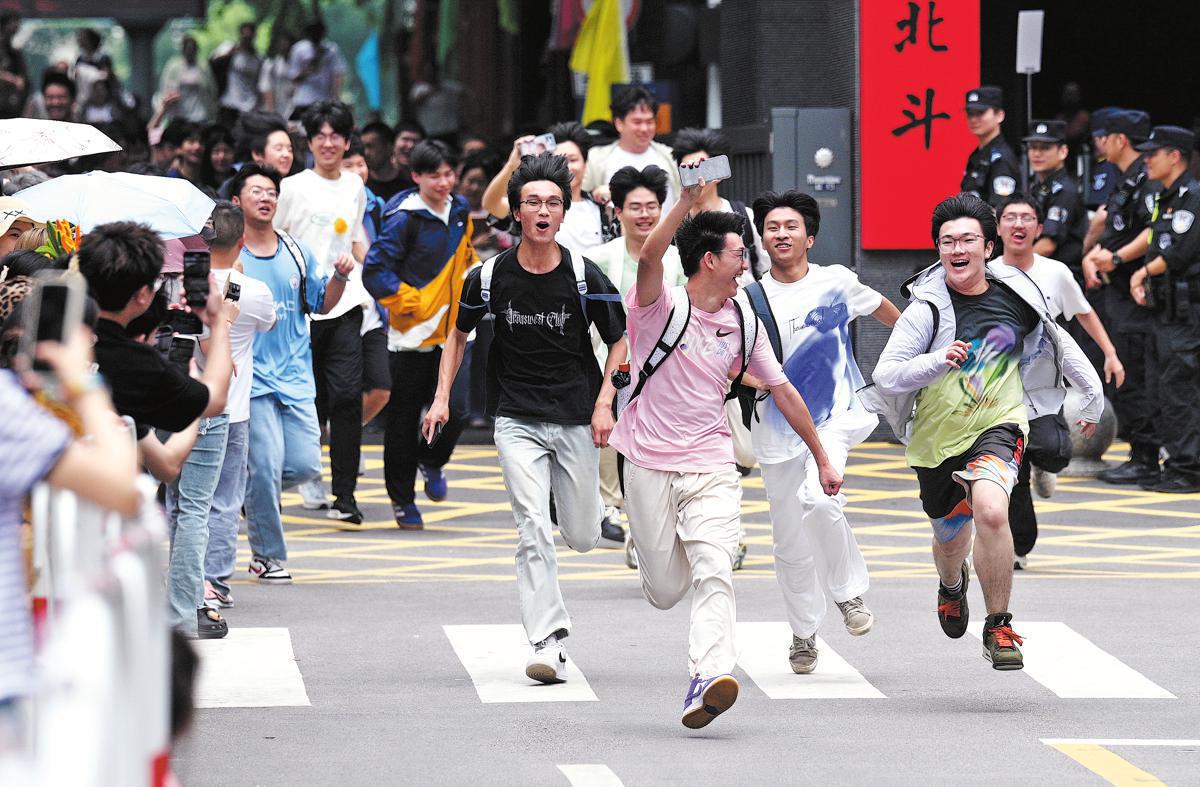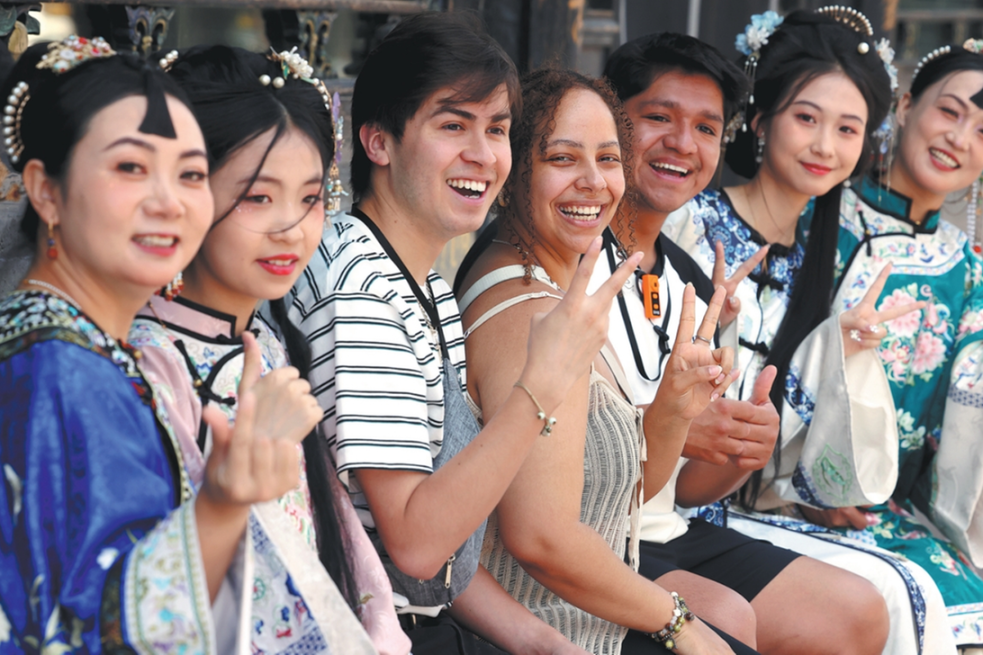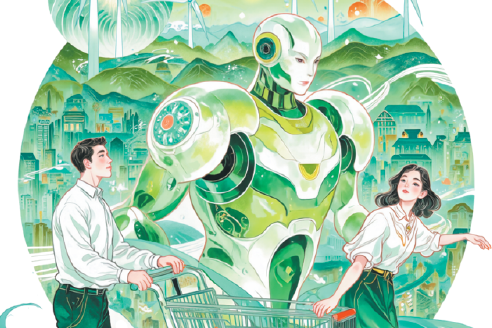Post-gaokao spending: A new gen is logging in as consumers


Suddenly, one sees a lot of young people all over the place. Either they are going around with their hair screaming pink or blue, or diving into waters, learning to drive and/or flying abroad on vacation. It is because an entire generation is sliding into adulthood.
As the college entrance examination, or gaokao, came to an end earlier this month, China's high school graduates didn't just heave a sigh of relief — they opened their wallets to unleash the now familiar "post-gaokao economy", offering a peek into how 18-year-olds view money and freedom.
For today's youth, this phase is becoming like a rite of passage, a brief period in which to craft a new identity before starting university life. Data from online travel agency Trip.com show that travel bookings surged by 88 percent only days after the exam. For most of these new adults, the trip was one of the first decisions they were taking as adults.
Parents are footing the bill for what many call "reward consumption". Many electronics stores have reported a double-digit growth in sales of smartphones, laptops and tablets, gifts that have always been considered essential for campus life. Besides, the sale of smart wearable products has also surged. As the high school graduates gradually become independent decision-makers and key participants in the market, their preferences are steering consumer trends, driving both market upgrades and product innovation.
Yet this consumption trend is not purely materialistic, most of these 18-year-olds are investing in themselves. Learning how to drive is one of the most popular choices for fresh high school graduates, while many young people are joining gyms and swimming clubs to sculpt the perfect figure before entering college. Even the surge in appointments for teeth whitening and double eyelid surgery shows how the young are conscious of their looks.
Unlike people of older generations who associate consumption with pure enjoyment or status, today's teens see spending as a form of realizing their full potential. Therefore, pink hair dyes? Absolutely. Anime-inspired makeovers? Why not?
However, beneath the glitter lies a cautionary tale. The way families are spending tens of thousands of yuan for teenagers' "must-have" experiences is triggering debates over rational consumption. Dermatologists have raised concern about the safety of cheap hair dyes, while travel agents report parents overspending on luxury vacation packages. The key is balance, so young people need to rein in the desire to chase every trend.
Ultimately, this surge in post-gaokao spending reflects deeper shifts in China's social fabric. For businesses, it represents both an opportunity and a challenge. Companies that combine profitability with responsibility, offering student discounts on durable, practical goods rather than exploiting fleeting fads, are more likely to secure long-term customer loyalty.
The younger generation's preference for quality over quantity is reshaping entire industries. They are shifting from pursuing mere utilitarian value to seeking emotional fulfillment and resonance. Businesses are adapting to this trend by aligning with youth preferences, emphasizing quality, personalization and differentiation in products and services.
Local governments can also better identify emerging demands, enhance high-quality supply, establish sustainable mechanisms and transform short-term momentum into long-term growth engines, ultimately driving comprehensive upgrades in consumption.
Beyond the economic figures, these spending choices reveal a profound truth: China's youth are not just preparing for university, they are rehearsing adulthood on their own terms. As businesses and policymakers take note, one thing is clear: the future belongs to those who see consumption not as an end, but as a means to build the lives they envision.
































